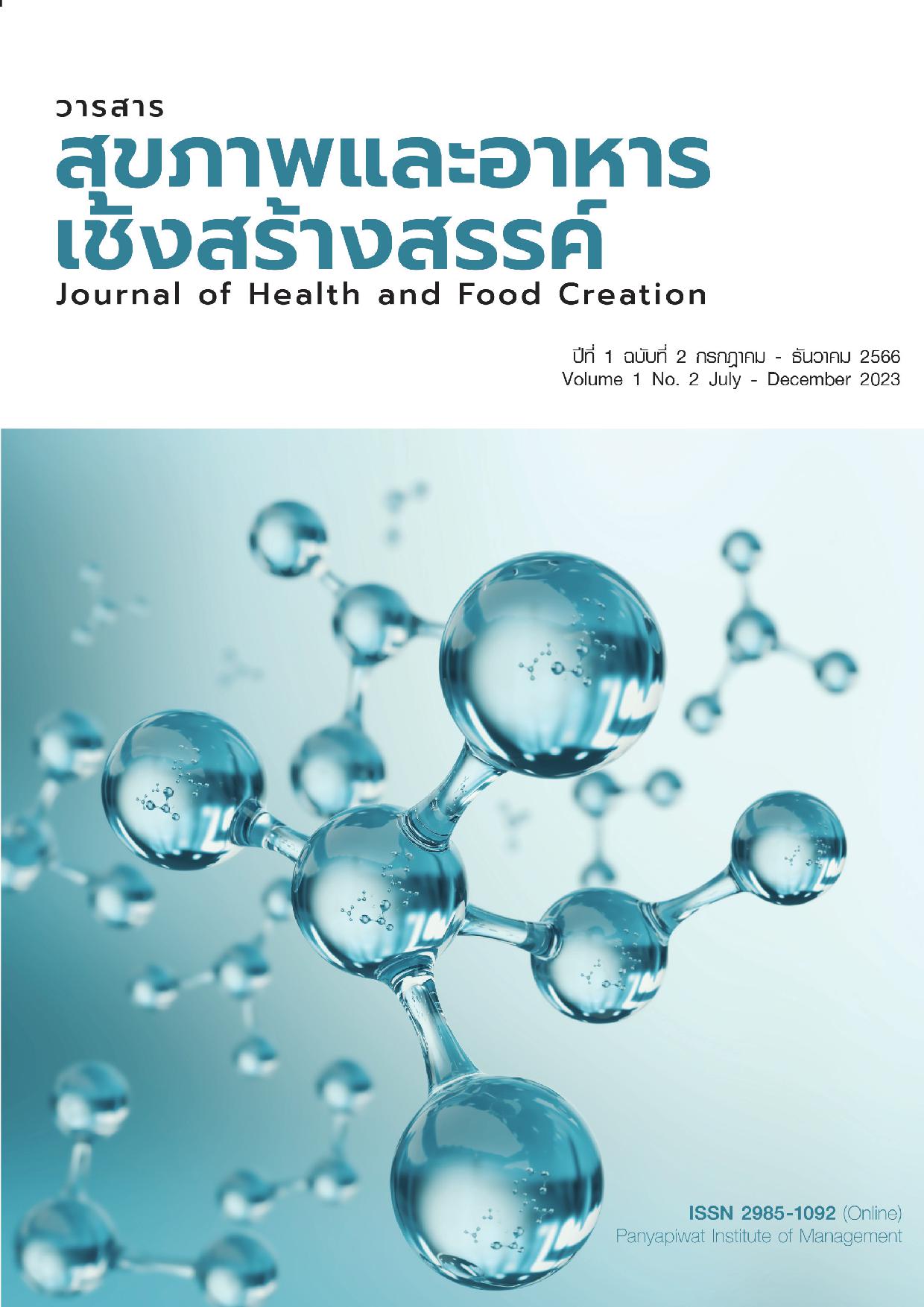SHORT COMMUNICATION: IMPLEMENTING PERSONALIZED INTERVENTIONS FOR CANCER SURVIVORS: THE INTERVENTIONISTS’ PERSPECTIVES AND TRAINING NEEDS
คำสำคัญ:
Interventionist, Personalized Intervention, Cancer Survivorsบทคัดย่อ
Cancer survivors often suffer from multiple symptoms including fatigue, pain, and emotional distress as a consequence of the diagnosis and treatment. These patients require comprehensive support systems to address these ongoing symptoms and enhance their overall quality of life. A research team is developing and testing the effect of a 12-week Combined Technology Enhanced Home Exercise Program and Acupressure (TEHEplus) program on symptoms and well-being (clinicaltrial.gov: NCT03576274). These personalized interventions for cancer survivors offer tailored non-pharmacological approaches, enhancing individualized care and positively impacting cancer survivors' overall well-being. During the program testing phase, the interventionists were responsible for providing an education session and delivering weekly personalized recommendations to participants. Emphasizing the crucial role of interventionists, this paper underscores the role and positive impact of tailored non-pharmacological approaches on survivors' lives in.
The TEHEplus program for cancer survivors uses mobile technologies (physical activity tracker and smartphone application) to deliver weekly-personalized recommendations. The paper shared the challenges faced by these interventionists (e.g., providing personalized intervention, technical challenges in using mobile technologies and online training) and the needs for comprehensive and ongoing trainings. Overall, interventionists bridge the gap between research and real-world implementation, shaping the future of personalized care.
เอกสารอ้างอิง
Fardell, J. E., Tan, S. Y. (Cindy), Kerin-Ayres, K., Dhillon, H. M., & Vardy, J. L. (2023). Symptom clusters in survivorship and their impact on ability to work among cancer survivors. Cancers, 15(21), Article 21. https://doi.org/10.3390/cancers15215119
Feng, L. N., He, J., Feng, L. X., Li, Y., Li, J., & Chen, C. (2023). Symptoms, symptom clusters and associated factors among cancer patients receiving immune checkpoint inhibitor therapy: A cross-sectional survey. European Journal of Oncology Nursing, 63, 102288. https://doi.org/10.1016/j.ejon.2023.102288
Krukowski, R. A., West, D. S., Priest, J., Ashikaga, T., Naud, S., & Harvey, J. R. (2019). The impact of the interventionist-participant relationship on treatment adherence and weight loss. Translational Behavioral Medicine, 9(2), 368-372. https://doi.org/10.1093/tbm/iby007
Robbins-Welty, G. A., Mueser, L., Mitchell, C., Pope, N., Arnold, R., Park, S., White, D., Smith, K. J., Reynolds, C., Rosenzweig, M., Bakitas, M., & Schenker, Y. (2018). Interventionist training and intervention fidelity monitoring and maintenance for connect, a nurse-led primary palliative care in oncology trial. Contemporary Clinical Trials Communications, 10, 57-61. https://doi.org/10.1016/j.conctc.2018.03.006
Siegel, R. L., Miller, K. D., Fuchs, H. E., & Jemal, A. (2021). Cancer statistics, 2021. CA: A Cancer Journal for Clinicians, 71(1), 7-33. https://doi.org/10.3322/caac.21654
Tan, C. J., Yip, S. Y. C., Chan, R. J., Chew, L., & Chan, A. (2022). Investigating how cancer-related symptoms influence work outcomes among cancer survivors: A systematic review. Journal of Cancer Survivorship: Research and Practice, 16(5), 1065-1078. https://doi.org/10.1007/s11764-021-01097-5
ดาวน์โหลด
เผยแพร่แล้ว
รูปแบบการอ้างอิง
ฉบับ
ประเภทบทความ
สัญญาอนุญาต
ลิขสิทธิ์ (c) 2023 วารสารสุขภาพและอาหารเชิงสร้างสรรค์

อนุญาตภายใต้เงื่อนไข Creative Commons Attribution-NonCommercial-NoDerivatives 4.0 International License.
“ข้าพเจ้าและผู้เขียนร่วม (ถ้ามี) ขอรับรองว่า บทความที่เสนอมานี้ยังไม่เคยได้รับการตีพิมพ์และไม่ได้อยู่ระหว่างกระบวนการพิจารณาลงตีพิมพ์ในวารสารหรือแหล่งเผยแพร่อื่นใด ข้าพเจ้าและผู้เขียนร่วมยอมรับหลักเกณฑ์การพิจารณาต้นฉบับ ทั้งยินยอมให้กองบรรณาธิการมีสิทธิ์พิจารณาและตรวจแก้ต้นฉบับได้ตามที่เห็นสมควร พร้อมนี้ขอมอบลิขสิทธิ์บทความที่ได้รับการตีพิมพ์ให้แก่สถาบันการจัดการปัญญาภิวัฒน์หากมีการฟ้องร้องเรื่องการละเมิดลิขสิทธิ์เกี่ยวกับภาพ กราฟ ข้อความส่วนใดส่วนหนึ่งและ/หรือข้อคิดเห็นที่ปรากฏในบทความข้าพเจ้าและผู้เขียนร่วมยินยอมรับผิดชอบแต่เพียงฝ่ายเดียว”






